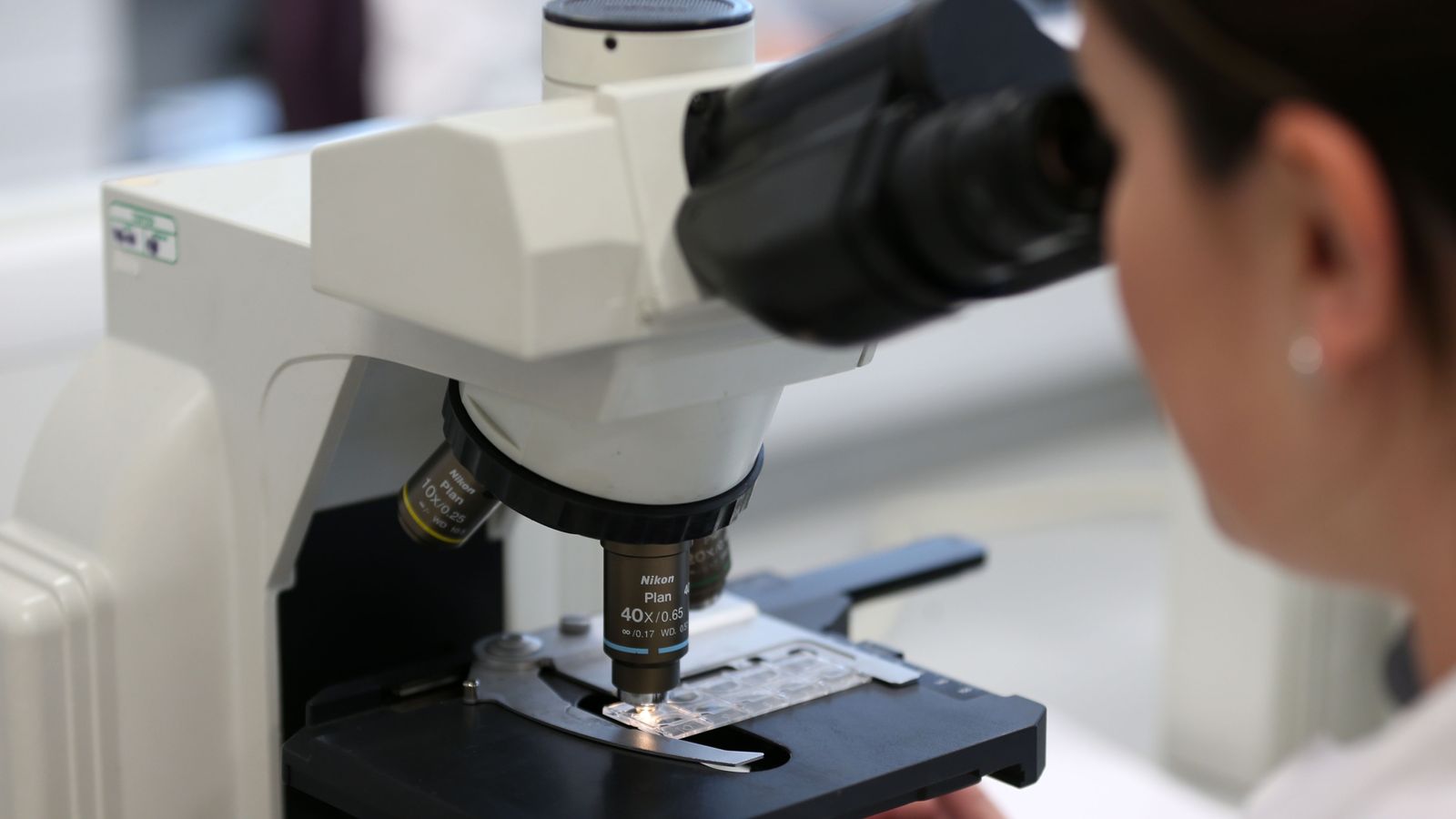The overall cancer death rate has fallen 16% since Cancer Research UK was founded, according to new data from the charity.
It said about 310 in every 100,000 people died from cancer each year in the UK in the early 2000s – but that now it’s around 260.
Factors are said to include improvements to screening programmes, research into more effective treatments, and strategies that help stop cancer from forming in the first place.
Some cancers have seen even bigger falls in death rates, such as cervical cancer with a 33% decrease.
Lung cancer survival rates have also doubled. In the mid-2000s around 10% of people with the disease in England survived for at least five years, now it’s 20%.
Cancer Research UK said it was partly due to research it has funded into early diagnosis and treatment.
“Improvements in cancer death rates are a result of widespread contributions from across the research landscape. But it’s clear that CRUK’s impact has been an important part of this progress,” the charity said.
Crisis in NHS cancer care needs same focus as search for COVID vaccine, experts warn
Targeted drug offers ‘landmark moment’ in treatment of advanced breast cancer
Cancer referrals at record high – but NHS can’t keep up with tests
Some £5.4bn has been invested since it was founded in February 2002, involving 3,000 researchers across 350 institutions. It plans at least another £1.5bn of research spending over the next five years.
It said drugs linked to its research are used to treat more than 125,000 patients in England every year.
Chief Executive Michelle Mitchell said “every penny of money donated has helped to revolutionise what we know about cancer and saved many lives”.
However, she said there was “still a long way to go” as cancer targets were still being missed and the UK lags behind comparable countries on survival rates.








